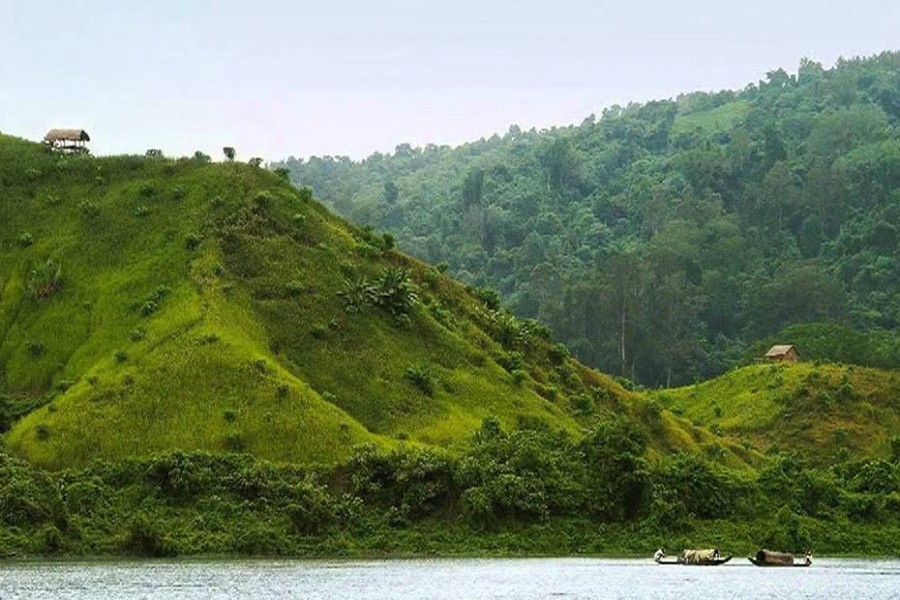Days are not far when there will be few hills left in the country for environmental activists to make an outcry about. Although the land belongs to the 'plain-land category' geologically, Bangladesh was not fully deprived of this wonderful feature of nature. Just around one hundred years back, the land's northeastern and southeastern regions were dense with hills. Those were covered with lush green forests. As decades wore on, the mostly earthen hills began being flattened. It did not take long to detect groups of syndicates who used to operate in gangs to flatten hills. The most common practice of hill-flattening in this country is encroachment on a hill on the pretext of a massive project by an entrepreneur. They would execute their job by advancing in a deftly adopted manner to make a hill disappear in days. A hill or a number of them would thus vanish before the locals could realise what a great harm had been done to their neighbourhood. With a large hill gone, ecological imbalances are veritably invited. So are the processes of biodiversity loss.
Unlike seen with the rivers, making hills vanish require certain types of expertise. A couple of labourers digging into a hill under the cover of trees do not seem unusual. After daylong work, some new persons are found carrying the dug-out soil to their destinations. The objectives turn out to be selling the earth, filling a ditch to construct a concrete building, or making mud-roads in the midst of the crop fields higher so that those do not go under monsoon water. The soil obtained from hills is also used as raw material for making embankments to protect privately owned establishments. Along with soil, trees are also felled quite slowly, turned into logs --- normally in gaps, and brought down to the plains by night. Few local adults have the time to notice what's being done to the hills in their locality. The hills continue to get smaller to, finally, wear a look of a small hillock with a few trees here and there. This is a highly ingenious way of 'stealing' a hill. A similar technique is adopted in the acts of riverbank grabbing.
There is a specific law in the country making hill-levelling a punishable offence. This is similar to that which is applied to the acts of encroachment on all state-owned water bodies and forestlands. Irony is there is an ever-expanding network fighting for environmental protection in the country. The grabbing syndicates go ahead with their acts completely in defiance of these activists. Sections of people may want to know about the source of temerity and recklessness demonstrated by the elements wreaking havoc on nature of this densely populated country. Upon learning that a section of corrupt people lurking in the authorities concerned allegedly back them, they do sport a blasé look. They are aware of the fact that nothing is impossible in Bangladesh and the poorer countries ifill-begottenmoney plays a vital role in certain dealings.
Unlike the green groups in many developed and developing countries, the ones in Bangladesh are amateurish. Allegations are there that many obscure but ever vocal environmental platforms work round the year to serve the interest of the black sheep they are supposed to be at war with. In theory, an environmental activist ought to remain prepared to fight to the last drop of his or her blood to uphold a cause vital to the safety of mankind and its habitats. Unfortunately, like the dedicated social crusaders their number is dwindling fast in this country. Or else, Bangladesh didn't have to see its idyllic cities like Chattogram continue to become largely uninhabitable.


